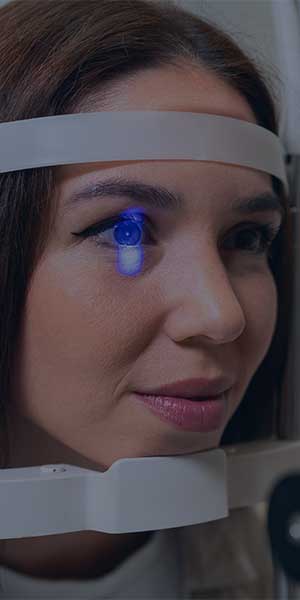Keratoconus

Keratoconus
Keratoconus is an eye disorder usually of genetic origin, characterized by the thinning and cone-like shaping of the cornea. This condition causes the cornea to lose its normal structure and affects vision. Keratoconus typically begins during adolescence and is a progressive disease. Rubbing the eyes is among the significant risk factors.
- Blurred or double vision
- Sensitivity to light
- Glasses or contact lenses no longer being sufficient
- Swelling or scarring in the cornea
Depending on the stage and severity of the disease, treatment options may vary.
- Glasses or Contact Lenses: In the early stages of keratoconus, vision problems can be corrected with glasses or specially designed contact lenses.
- Corneal Cross-Linking: This treatment method is used to halt the progression of keratoconus. The procedure involves applying UV light to the corneal surface to strengthen the cornea.
- Keratoplasty (Corneal Transplant): In cases where keratoconus has progressed and other treatment options are insufficient, a corneal transplant may be considered. This procedure aims to solve vision problems by replacing the cornea with a donor cornea.
- Corneal Ring (Intrastromal Corneal Ring Segments)
In this procedure, ring segments are placed in the cornea to flatten it and reduce vision problems in cases where the cornea has thinned and taken on a cone shape.
Vision Improvements: Corneal ring implantation can enhance vision quality by correcting the shape of the cornea and reducing blurred vision issues.
Reducing Contact Lens Dependency: Corneal ring application may decrease dependence on contact lenses, offering a more comfortable visual experience.
Reducing Glasses Dependency: Corneal rings can also reduce the need for glasses, leading to clearer vision.
Corneal ring implantation is typically a surgical procedure performed under local anesthesia, causing minimal discomfort to patients. The recovery process is usually quick, allowing patients to return to their daily activities shortly after the procedure.
However, it’s crucial to conduct a detailed examination to determine if corneal ring implantation is suitable for each patient. Each individual may have different needs, so following professional recommendations is advisable.
Keratoconus requires regular eye examinations and monitoring by a specialist. Early diagnosis and appropriate treatment can help manage the progression of keratoconus and minimize vision problems. Prioritize your eye health and don’t hesitate to seek professional assistance. Wishing you healthy eyes!

